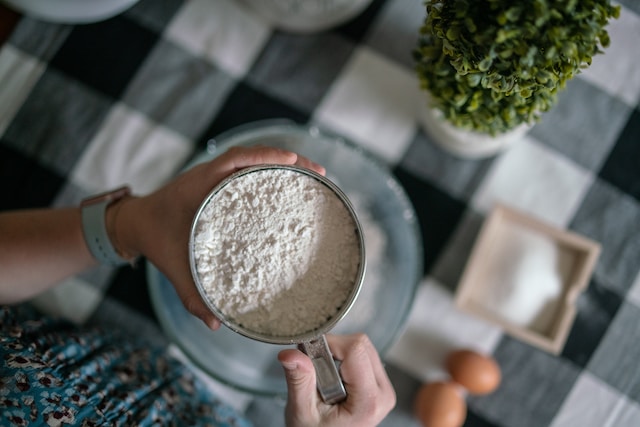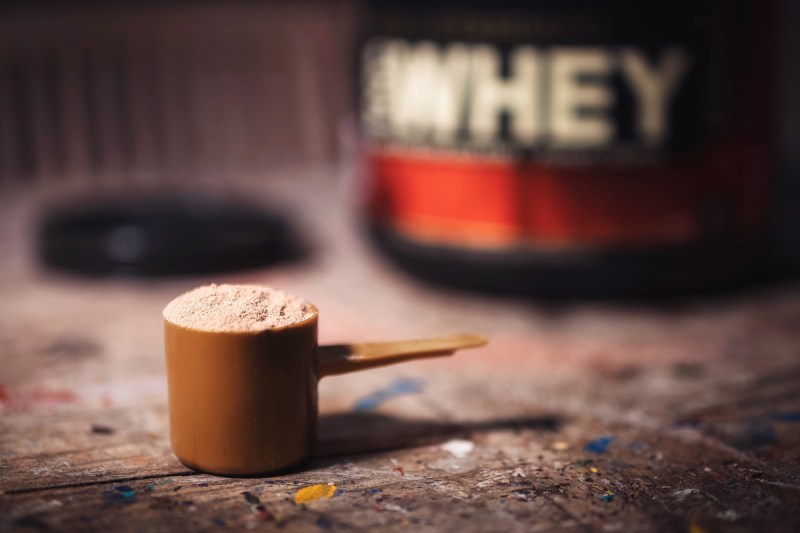If you’re serious about gains (muscle, strength, athletic performance) and building muscle, protein powder is likely a staple in your supplement routine. But have you ever wondered if that tub sitting in your pantry has a shelf life? Does protein powder expire? And is it safe to chug that shake even if the expiration date has passed?
Here’s what the research says.
Does protein powder expire?

Yes, they do. While protein powders aren’t like fresh produce that spoils quickly, they do have an expiration date. Most manufacturers print a “best by” or “use by” date on the packaging. This date indicates how long the powder is expected to maintain its optimal quality, flavor, and nutritional content.
How long is protein powder good for once opened?
The general rule is that most protein powders are good for 6 to 12 months once opened if stored properly, but always check the manufacturer’s recommendations on the packaging, as some may have shorter or longer shelf lives.
You might be thinking, “What if I left it in my hot car or garage?” Researchers actually put this to the test. They exposed whey protein powder to extreme heat and humidity. Surprisingly, even in those tough conditions, the sealed powder lasted about nine months before showing signs of clumping and losing some nutritional value. However, under normal storage conditions (think cool, dry pantry), it can easily last 12 months or even longer.
Bottom line: Treat your protein powder right by storing it in a cool, dry place and keeping an eye on the expiration date. If it’s been through a heatwave in your gym bag, it might be time to replace it.
Is it OK to use expired protein powder?
The short answer is: It depends. If it’s a few days or weeks past the expiration date, it’s probably OK to consume. It might lose some potency or flavor, but it’s unlikely to make you sick. However, Consuming protein powder years past the expiration date is definitely not recommended.
Potential risks
While it’s unlikely your protein powder will harm you if it is a little bit past its prime, there are a few potential risks to consider:
- Loss of nutrients: As mentioned in the previous section, protein powder loses some of its nutritional value over time.
- Clumping and texture changes: Protein powder can harden and clump as it ages, altering its texture and making it more difficult to mix.
- Digestive issues: Old protein powder may cause digestive upset like bloating, gas, or diarrhea.
How to tell if protein powder has gone bad

Basically, trust your senses. If it smells off or tastes stale, it’s time to toss it.
Here are a few things to look for:
- Check the “best by” date: Sure, this date isn’t necessarily a hard stop, but it’s a good guideline. The “best by” date is usually used to gauge quality rather than safety, but it’s a good idea to replace the powder once it hits that date.
- Look for clumping: Protein powders will naturally clump over time as the powder absorbs moisture from the air. If your powder looks like cake batter mid-mix, that’s a sign it’s getting old.
- Take a sniff: Protein powders typically have a mild, sweet, or neutral aroma. If they smell sour, rancid, or unusually strong, they’ve likely gone bad.
- Check the color: Most protein powders will maintain their original color for a good while, but over time, they may start to yellow or darken.
And we shouldn’t have to tell you this, but if there are visible signs of mold, chuck it!
How to store protein powder properly

Proper storage conditions determine protein powder shelf life. The ideal storage situation is a cool, dry, dark place like a pantry. You may also want to keep it in a sealed container to prevent moisture and air exposure. (The original container it came in works just fine.) If you transfer it to another container, make sure it’s an airtight and food-grade vessel. You should also slap an expiration date on the new container.
Don’t keep it in your car, garage, or kitchen counter where it could overheat or absorb ambient moisture. We know that sometimes, after a long workout, you’re sweaty and just want to get that recovery shake going, but try to avoid scooping with a wet spoon or using damp containers, which can introduce moisture over time.
Takeaway

Pay attention to expiration dates, store your protein powder correctly, and don’t be afraid to toss it if it seems suspect. Sure, it’s expensive, but your health is worth more. Also, if it spoils before you’ve used it all, it may be time to rethink whether you need to purchase so much at once.




